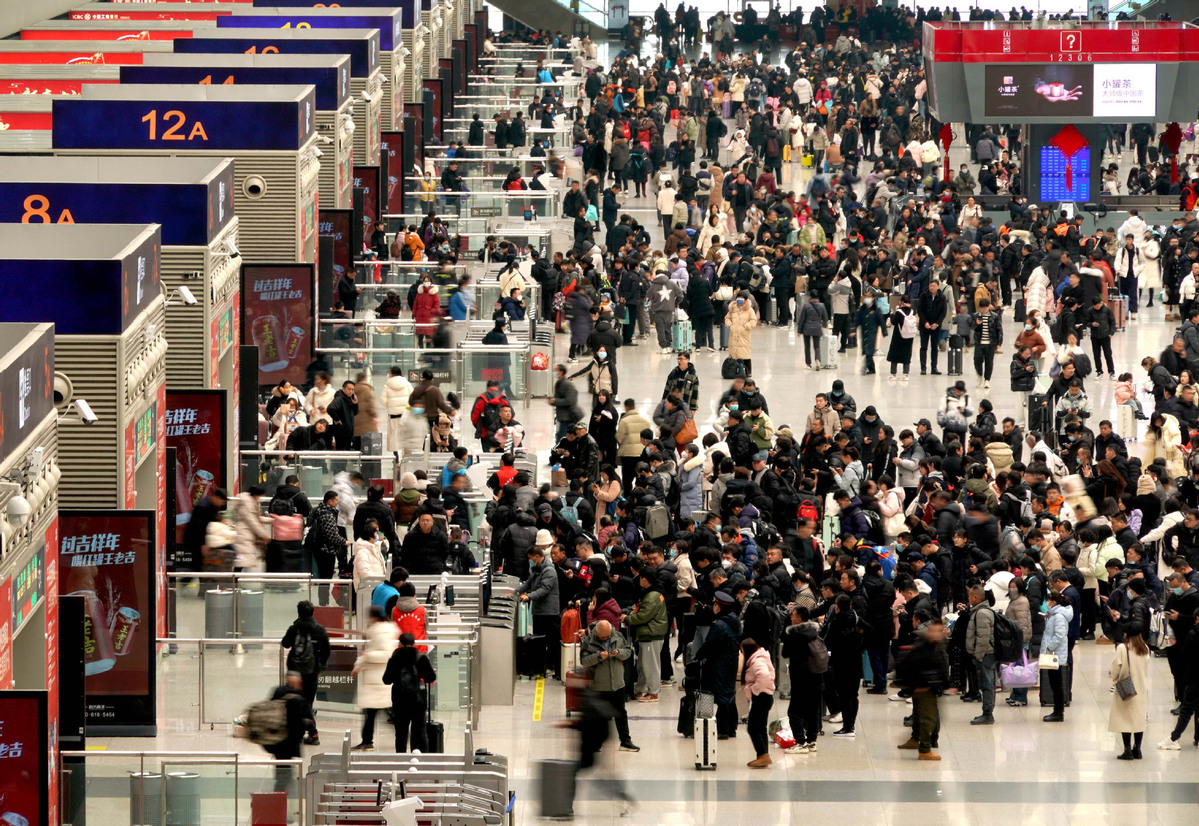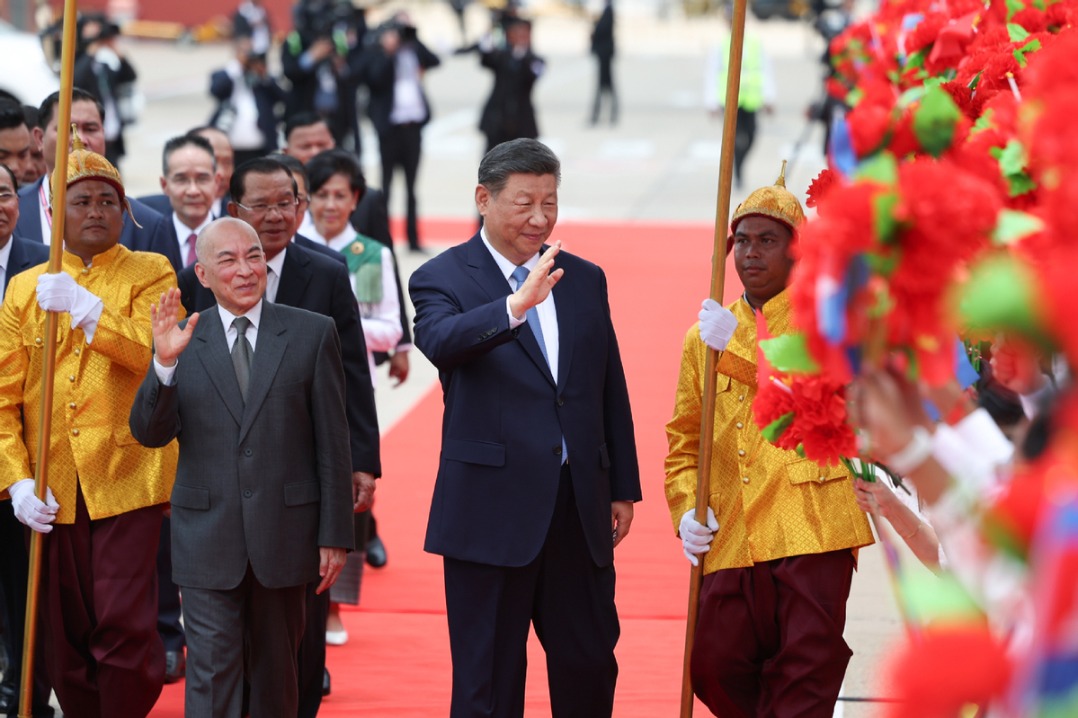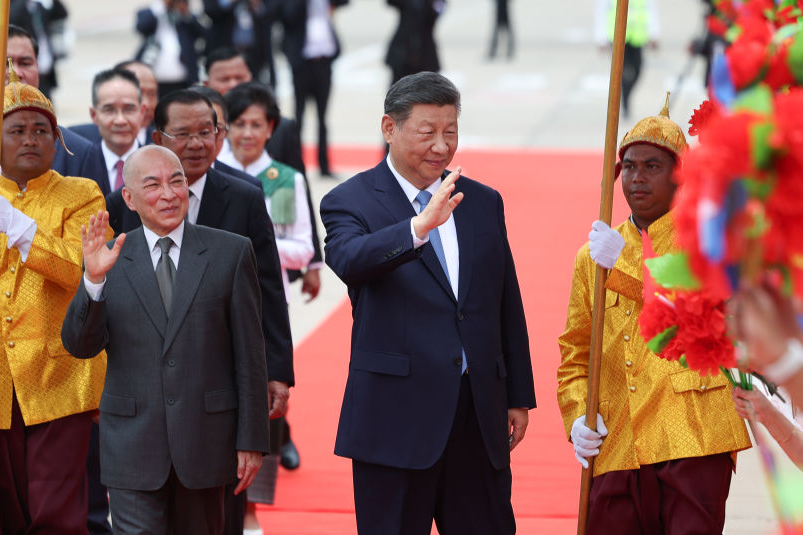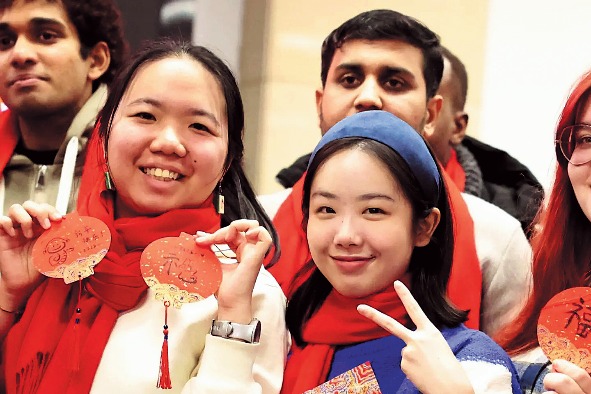China's consumption data demonstrates spending confidence
By Yi Shaohua and Song Yuru | chinadaily.com.cn | Updated: 2024-03-23 06:37

China's consumption sector made a good start to 2024, showcasing the country's huge consumption potential and underscoring the growing confidence in spending, official data showed.
As a super-large economy, China possesses substantial consumption potential, high demand, and market vitality. These factors not only promise further growth and expansion of consumption but also provide a solid foundation for advancing the high-quality development of the country's economy. Most importantly, they serve as a reliable source of confidence for sustained economic progress in the long term.
The positive beginning to 2024 builds on a consumption recovery last year, as indicated by data from the National Bureau of Statistics. The figures revealed that total retail sales of consumer goods reached 47 trillion yuan ($6.5 trillion) last year, marking a 7.2 percent increase from the previous year and a significant 15.6 percent rise compared to the same period in 2019.
The contribution rate of final consumer spending to economic growth also reached 82.5 percent, driving GDP growth by 4.3 percentage points, which all showed that the fundamental role of consumption in driving economic growth has been further enhanced.
Starting with the basic consumer goods market, it has consistently maintained a high growth rate, leading to the continuous expansion of the consumption scale.
In 2023, the total consumption of grain, oil, food, beverages, tobacco and alcohol increased greatly. The total consumption of clothing, shoes, hats, and knitted textiles soared by 10.9 percent year-on-year, while the consumption of gold, silver and jewelry increased by 13.3 percent.
Looking at 2024, data from the Ministry of Commerce showed that during the New Year's Day holiday, the sales of key retail and catering companies across the country increased by 11 percent year-on-year.
The sales of gold, silver and other jewelries, sports and entertainment supplies, and communication equipment of retail enterprises increased by 23.8 percent, 15.6 percent, and 10.4 percent, respectively, year-on-year.
The sales of an annual online shopping festival, from Jan 18 to Feb 17, hit approximately 1.2 trillion yuan, which is a near 9 percent rise compared with that of last year.
These are all positive indicators that mark a strong start to the year and emphasize the vast potential of the country's consumer market.
Secondly, the scale of service consumption continues to expand and has become a new engine driving consumption growth.
Since 2023, service consumption has shown a rapid rise. Annual retail sales of service consumption increased by 20 percent year-on-year, which is 14.2 percentage points higher than the growth rate of commodity retail sales.
Catering consumption has grown significantly, with catering revenue reaching 5.29 billion yuan throughout the year, a year-on-year increase of 20 percent. During the Spring Festival holiday, the national average daily sales revenue of catering services increased by 31.5 percent year-on-year.
In addition, entertainment and tourism consumption have shown explosive growth. During the New Year's Day holiday, more than 135 million people traveled nationwide, driving domestic tourism revenue to reach 79.73 billion yuan, more than double compared with the previous year.
During the eight-day Spring Festival holiday, the number of domestic tourists reached 474 million, a year-on-year increase of 34.3 percent. The total domestic tourism expenditure was 632.69 billion yuan, a year-on-year increase of 47.3 percent.
Box office performance was also strong, with the national box office on New Year's Day holiday exceeding 1.5 billion yuan, 2.7 times that of the previous year.
As residents' living standards improve and individuals strive to enhance their quality of life, the service consumption market is thriving.
Thirdly, green, healthy, and smart consumption remain hot topics, unleashing potential consumer demand.
As technological breakthroughs and living standards improve, the values of health and environmental protection become more firmly ingrained in society. Consequently, the demand for green consumer products is on the rise.
Smart homes are now integrating various features like artificial intelligence, the Internet of things, and everyday necessities, enhancing the convenience, safety, and energy efficiency of family life.
As a result, smart home appliances have gained popularity among consumers. In 2023, the value of the country's smart home market reached 7.16 trillion yuan. Additionally, sales of green and healthy products are thriving in consumption promotion activities organized by various entities.
During the New Year's Day and Spring Festival holidays this year, the Ministry of Commerce said that the sales of instant retailing on e-commerce platforms increased by 32.2 percent year-on-year, and the sales of green and organic food in some large supermarket chains increased by nearly 20 percent.
The data reflects the role of the "holiday economy" in driving green and healthy consumption while highlighting the increasing potential for the expanded consumption of green products.
Fourthly, new consumption patterns and scenarios are rapidly evolving, further growing the potential of the consumer market.
Driven by the new generation of information technology, consumer carriers, or platforms, continue to innovate with various business patterns and consumption scenarios around different themes and geographical spaces.
Since 2023, many new consumption spots have emerged. For instance, in the summer, Zibo city in Shandong province gained popularity for its barbecue offerings, sparking a nationwide tourism craze. Similarly, during the winter season, Harbin, the capital of Heilongjiang province, garnered attention through online platforms due to its captivating ice and snow activities.
During the 2024 New Year's Day holiday, Harbin is reported to have ushered in 3.05 million tourists and generated revenue of 5.91 billion yuan, the most in its history.
Simultaneously, major brands and intellectual properties, or IPs, have initiated collaborations, leading to the emergence of numerous popular consumer IPs.
For example, coffee brand Luckin cooperated with Korean sticker memes Line Puppy and jointly launched new products and peripheral products on Aug 22, the Chinese Valentine's Day, last year.
Milk tea chain Heytea and Korean cartoon Loopy also launched new products and limited peripheral products during the Christmas season.
Notably, various cities across the country, including Beijing, Shanghai, Chongqing, have made efforts to build themselves into international consumption cities, through driving new patterns like hotpot festivals and night economies.
Rural consumption also experienced a recovery and surged as many individuals returned to their hometowns during the Spring Festival holiday. This influx of people sparked increased activity in catering, tourism, and the demand for agricultural products in rural areas.
According to the data from the Ministry of Commerce, online retail sales in rural areas witnessed a year-on-year increase of 16.1 percent during the Spring Festival holiday. This trend exemplifies the synchronized progress of consumption in both urban and rural areas, as they advance hand-in-hand.
The authors are researchers from the National Academy of Economic Strategy under the Chinese Academy of Social Sciences. The views don't necessarily reflect those of China Daily.
























